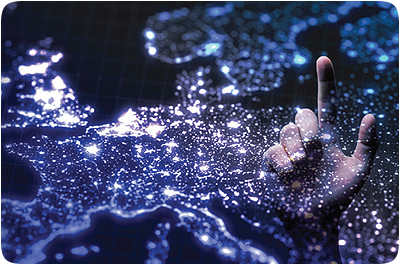 The European Energy Union strategy aims to guarantee accessible, affordable, secure, competitive and sustainable energy for all Europeans.
The European Energy Union strategy aims to guarantee accessible, affordable, secure, competitive and sustainable energy for all Europeans.
To achieve these objectives and meet our carbon targets, the European energy market must undergo fundamental changes. We need to rapidly move from a market driven by fossil fuels designed around big central controllable generation units to a 'demand-driven' energy system, integrating renewables and more local generation and storage solutions where customers are at the heart of the system.
The timing of electricity management, related to when and where electricity is needed on the grid, will matter far more in coming decades due to an increasing reliance on distributed energy resources and the integration of large and small renewables.
Moreover, consumers will have the right tools to increase their consumption during supply peaks and reduce it when the system is on a low supply or when there is high demand. The number of prosumers will grow, along with the flexibility of consumption increasing. However, this will only be possible if customers have access to systems that work for them. It is crucial to prevent unplanned downtime that could impact the flexibility and energy supply.
Smart metering systems and access to real time energy data are both indispensable to empower the consumer and to ensure a good management of the whole system.
WHY SMART TECHNOLOGIES ARE CRUCIAL TO ACHIEVE THE ENERGY TRANSITION
 For a fundamental change to happen in Europe's energy system, the policies need to be formulated with the consumer in mind. The system needs to be designed for consumers to receive accurate and timely information, to enable them to acknowledge and change their consumption patterns, to encourage them to engage in energy generation, demand response, and to protect their rights and privacy.
For a fundamental change to happen in Europe's energy system, the policies need to be formulated with the consumer in mind. The system needs to be designed for consumers to receive accurate and timely information, to enable them to acknowledge and change their consumption patterns, to encourage them to engage in energy generation, demand response, and to protect their rights and privacy.
Smart metering represents the greatest tool for consumer empowerment to reach the energy industry in the last 100 years. For the first time, consumers will be able to see exactly how much energy they consume, when they consume it and how much it costs. The ability to monitor and control consumption is the pre-requisite for market-based pricing and network optimisation.
Smart metering benefits such as savings on energy bills and reduced meter reading costs are a welcome economic relief, but in the long run an invaluable benefit will be the transition of our outdated energy system to a smart, demand driven, flexible and greener one.
The successful deployment of this technology across the EU is the first step in achieving this aim. The next steps require additional services and technologies that need to be available and to work with the smart meter data.
HOW CAN POLICY-MAKERS HELP IN MAKING THE NEW ENERGY MARKET A REALITY?
Achieving the full benefits of smart meters means considering the associated impact of communications technologies, flexible demand, data, security, interoperability and consumer engagement. Therefore, we need to work together to:
- 1. Create the right market conditions: Regulatory barriers, a lack of practical experiences and slow political processes still hinder the transition towards a digitalised, decentralised, consumer focused energy system. It is important to have a clear understanding of the roles, responsibilities, processes and infrastructure that are needed in the new energy market structure.
- 2. Place the consumer at the heart of the energy system: An intelligent metering system is a prerequisite to the active involvement of consumers in the energy market.
- 3. Guard the privacy and security of energy data: The set-up of digital flows connecting assets, organisations and people, will require a fully secured value chain. The protection of consumers' privacy and the protection from cybersecurity threats has to be an integral part of smart energy management infrastructures.
- 4. Implement the existing regulatory framework: The Clean Energy Package6 is an important step on the way to achieving the energy transition. This legislation contains crucial provisions to create the right markets conditions, to involve the consumers and ensure privacy and security of energy data.
"The energy transition towards a cleaner, more flexible and consumer-focused energy system cannot happen without smart technologies. And having them in place is not enough – policy makers need to understand the realities of the market and what is needed to make smart technologies fit for Europe's ambitious energy and climate goals."
Frances Williamson, ESMIG Chair of Regulation and Policy Group and Head of Communications and Industry Engagement at Chameleon Technology
About ESMIG
ESMIG was created to advance the uptake of smart meters in Europe, by ensuring the appropriate legislation and framework are in place to permit their deployment and maximise benefits for consumers, the grid and society as a whole.
In order to realise the full benefits of smart meters, our activities have evolved and now focus on systems for smart metering, consumer energy management and safe and secure data transfer. Our members provide products, information technology and services for multi-commodity metering, displayand management of energy consumption and production at consumer premises. ESMIG drives the timely introduction of efficient and scalable consumer- friendly products and services fundamental to the participation of end-users in the smart energy system of Europe's future.
We work closely with EU policy makers to make Europe's energy system cleaner, reliable, more efficient and to keep the European consumers informed, empowered and engaged. We have worked intensively in this capacity with the European Commission and Member States to advance the smart meter roll-out and to understand what needs to be done when the roll-out is complete, if we are to realise the expected benefits.
Simultaneously, we have worked with our members to find innovative solutions to address the challenges of interoperability, security, consumer tools and data management.
For more information, insights and concrete proposals, please check our website: https://esmig.eu